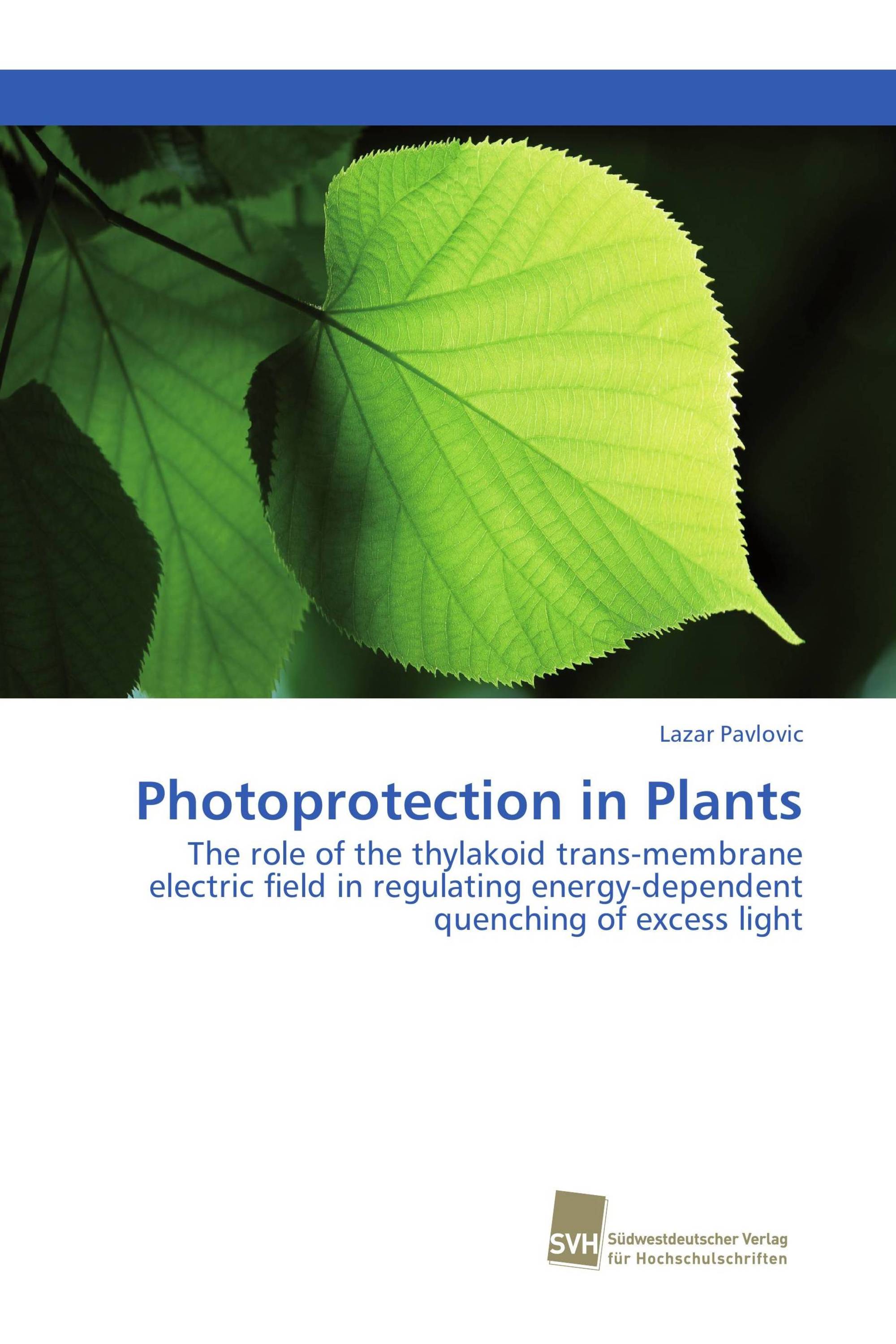Photoprotection in Plants
The role of the thylakoid trans-membrane electric field in regulating energy-dependent quenching of excess light
€ 79,90
Plants, like all photosynthetic organisms, depend on light energy absorbed from the sun for survival, growth, and reproduction. Periodically, plants absorb light at levels that exceed efficient photosynthesis under relatively limited light conditions. Excess light must be converted into heat to minimize light stress and photodamage. Energy-dependent non-photochemical quenching (qE) is a biochemical defense mechanism that efficiently converts excess light into heat and limits the effects of light stress in the short-term. How is this energy-dependent quenching regulated and what are the major factors involved? The author, Dr. Lazar Pavlovic, gives an overview of current scientific understanding on the subject. He then presents original research that has been published in part and investigates the role of the electric field across the chloroplast thylakoid membrane and other factors that regulate qE. Results of this work have direct implications on applied breeding efforts to improve biomass production in food and non-food crops. The book is aimed at plant biochemists, crop breeders, and other professionals in the plant sciences.
Buch Details: |
|
|
ISBN-13: |
978-620-2-32215-7 |
|
ISBN-10: |
6202322152 |
|
EAN: |
9786202322157 |
|
Buchsprache: |
English |
|
By (author) : |
Lazar Pavlovic |
|
Seitenanzahl: |
164 |
|
Veröffentlicht am: |
16.03.2018 |
|
Kategorie: |
Biology |
